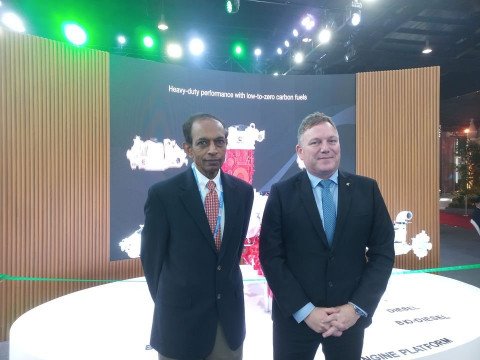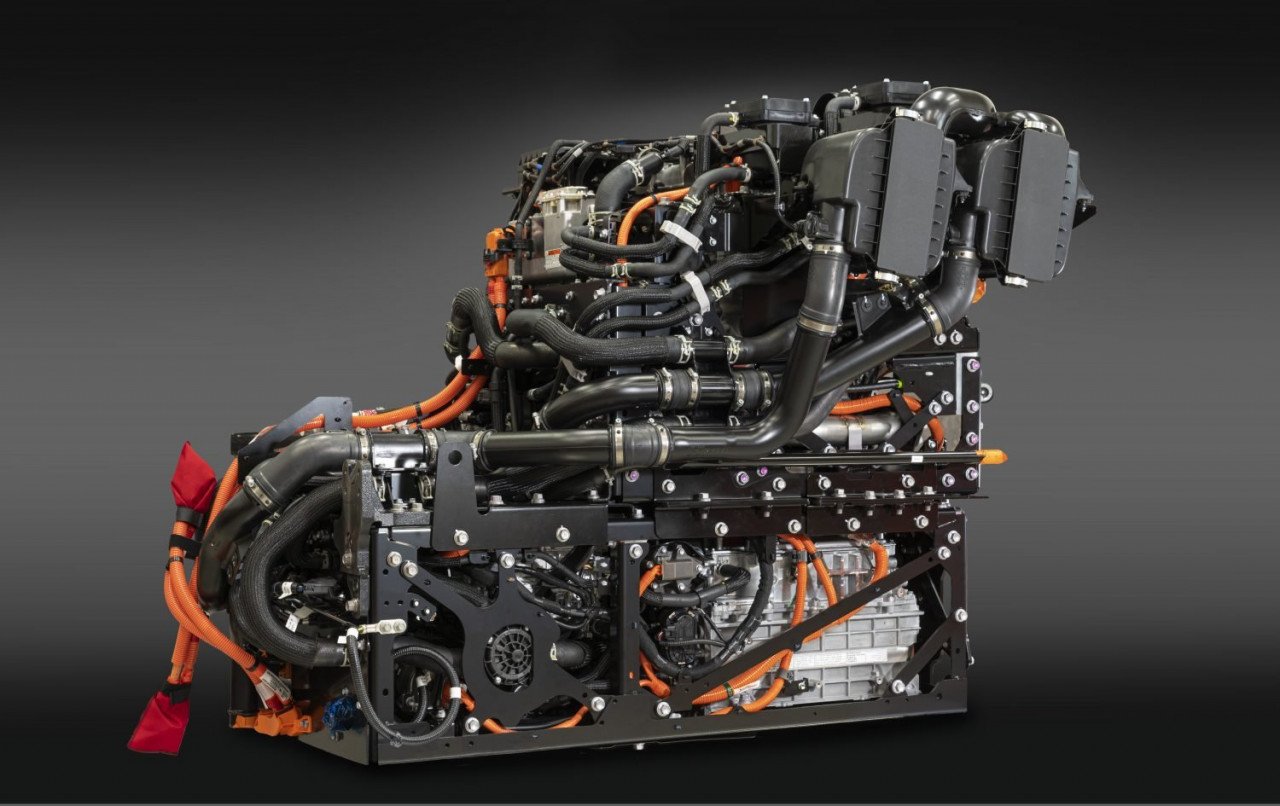Toyota Motor North America has recently announced that it was recently granted a Zero Emission Powertrain (ZEP) Executive Order from the California Air Resources Board (CARB) for its new heavy-duty fuel cell electric powertrain meant for Class 8 trucks.
The hydrogen-fueled powertrain kit includes hydrogen fuel storage tanks, fuel cell stacks, batteries, electric motors and transmission. The automaker claims that the powertrain offers a viable alternative to traditional diesel engines used in commercial trucks, as fleet companies look to transition their vehicles to zero-emission.
CARB's ZEP Executive Order certifies that a powertrain complies with CARB regulations for zero-emission powertrains determined to meet specific emissions standards required for sale in California.
Vehicle manufacturers using Toyota's certified powertrain may also be eligible for other available incentives, such as CARB's Hybrid and Zero-Emission Truck and Bus Voucher Incentive Project (HVIP), the Clean Truck Fund (CTF), and certain federal incentives.
RELATED: Japanese auto firms research on H2 engines for heavy-duty CVs
"Toyota aims to reduce or eliminate emissions for all mobility solutions, and our fuel cell electric powertrains have proven that hydrogen can play a significant role in the emissions reduction of emissions from heavy-duty transportation," said Scott Friedman, senior program manager advanced mobility, Toyota Motor North America.
"Receiving the Zero-Emission Powertrain Executive Order from CARB is a key achievement for our teams who have dedicated an incredible amount of time and effort, and we are excited to offer this powertrain commercially in the near future", he added.
The automaker claims that the powertrain kit is now ready for commercialization, with production slated to start for customers later this year at the company's manufacturing plant in Kentucky. This newest generation of powertrain reflects key learnings and improvements in terms of energy efficiency, package size, and more from extensive real-world testing and development from the company's fuel cell development engineering team.
Toyota considers fuel cell electric powertrains as advantageous for heavy- and medium-duty transport, as they are often lighter to allow for more payload, and they offer more uptime thanks to fueling times that are much closer to conventional diesel powertrains.
RELATED: Toyota, NREL to work on 1 MW PEM fuel cell power generation system
"We believe hydrogen will play a significant role in the emissions reduction of heavy-duty transport while not sacrificing the distance, power, or fueling times needed to keep these fleet and individual operators running," said Chris Rovik, executive program manager, advanced mobility, Toyota Motor North America.
He further added, "Fuel cell technology is scalable, and we believe it will take an increasingly visible and important role in our collective fight to reduce and eliminate carbon as we move towards a hydrogen society."
It is to be noted that Toyota's R&D with hydrogen fuel cell technology spans nearly 30 years. The company has applied the technology to a variety of applications, from the world's first mass market passenger FCEV 'Mirai' to power generation systems.

PLANET 2050 Strategy: Cummins driving CVs to Zero-Emission future
Read More

